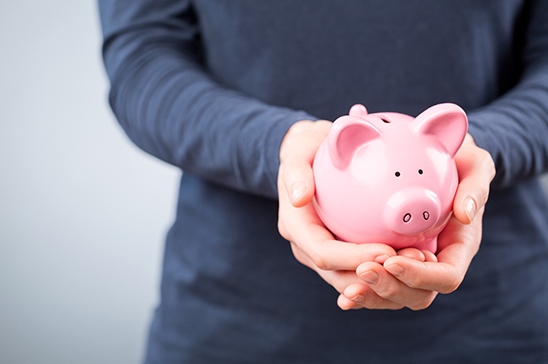
Are you Confounded by Compounding?
Find out how compounding your interest can boost your returns
Personal Finance journalist Emma Lunn looks at the power of compounding and how it could work for your savings and investments.
What on earth is compound interest?
Compounding interest can be a powerful force when it comes to boosting the returns on your savings or investments. By reinvesting your interest payments or dividends, you’ll potentially be able to reach your financial goals much quicker.
Compound interest is basically interest earned on interest.
In the first year of investing, you could generate returns on your initial investment. In the second year, you invest the capital (your initial investment) plus any returns, and you generate further returns on the total. And so it goes in each subsequent year, with your savings pot benefiting from a snowball effect on any interest earned.
The other way to calculate interest is “simple” interest. As the name suggests, this option is pretty simple: interest is calculated solely as a percentage of the initial deposit.
Compound vs simple interest
A quick example compares simple and compound interest to illustrate what a difference compounding can make.
For example, if you were earning 4% interest annually on a savings balance of £1,000, you’d get £40 (4% of £1,000) in interest each year.
If you siphoned off the interest to another account each year for 10 years, and just earned interest on £1,000, you’d earn a total of £400 over the decade.
But if you left the £40 in your savings account, in year two you’d be earning interest on £1,040 (£1,000 plus £40). This means you’d get 4% of £1,040; £41.60. In the third year you’d earn 4% interest on £1,081.60, which equates to £43.26.
After 10 years you’d have earned a total of £480.24 in interest; that’s £80.24 more than you’d earn with simple interest.
The benefits of compounding
Compounding helps a sum grow faster and helps investors maximise returns, especially with larger values and over a longer time-horizon.
If you invest in shares, rather than saving in cash, you can take advantage of compounding by reinvesting dividends. This can prove a powerful investment strategy. According to calculations by financial magazine FT Adviser, if you’d invested £5,000 in the FTSE All Share in 1986 – and withdrawn any returns – your pot would have grown to £28,357 by the end of 2016. But if you’d reinvested your returns – and so benefited from compounding – your pot would have grown to £88,396 over the same period.
Note, of course, that losses would also increase if the value of the shares went down.
The frequency of compounding
When calculating compound interest, the number of “compounding periods” makes a difference. In general, the higher the number of compounding periods, the greater the amount of compound interest.
For example, if you invested £1,000 at an annual interest rate of 3% and interest was compounded annually, you’d earn £159.27 in interest over five years.
But if interest was compounded monthly, you’d earn £161.62 over the same time period.
To compound or not
The question of whether to reinvest interest earned is really down to the individual and their personal investment and/or savings strategy.
Some people invest money so they can use the interest earned.
As an extreme example if you had £10million in cash and put it in a savings account earning 4% interest per annum, you could very comfortably live off the £400,000 earned in interest every year. But in this case you would never grow the amount of cash you had and so would not be benefitting from compounding.
However, others invest or save to specifically grow their pot of money. If the £400,000 annual interest earned by the theoretical person in this example was reinvested, they would of course be growing their savings every year.
In reality, few of us have £10million in our savings and/or investments, so the likelihood is that the ability to benefit from compounding will be dependent on circumstances at the time or types of investments and savings held. Remember, your capital is at risk if you invest so the value of your investments could go up as well as down.
Either way it is worth taking a look at your own savings and investments to see how your money as well as any potential interest you might earn could possibly work harder for you.
To read similar personal finance articles download your copy of Fixed magazine, Crowdstacker's new, free financial lifestyle magazine, featuring the latest in travel, hobbies, money saving tips and more.
